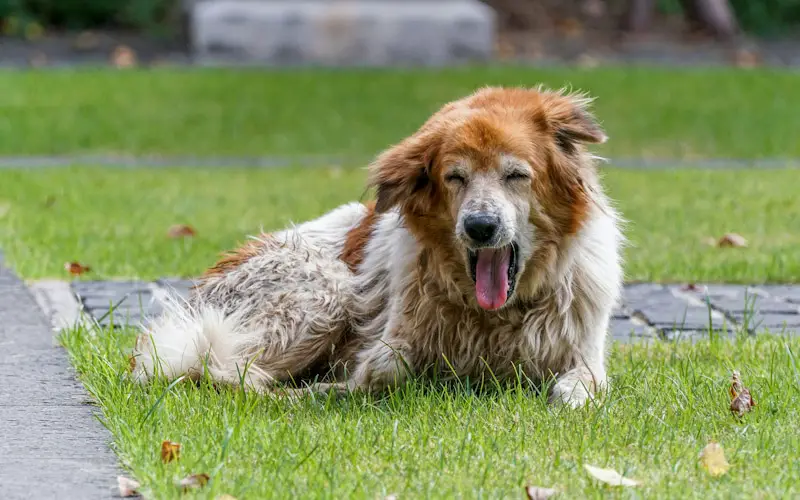Worried about your dog’s cough & gagging? Learn about common causes, home remedies, & when to see a vet. Expert advice & quick answers inside!

Understanding Dog Coughing and Gagging
Dogs cough and gag for various reasons, ranging from mild to serious. Coughing is a natural reflex that helps clear the airways of mucus, irritants, or foreign objects. Gagging is a similar reflex that occurs when something stimulates the back of the throat or the mouth.
Some coughing and gagging is normal and harmless, especially after eating, drinking, or exercising. However, if your dog coughs and gags frequently, excessively, or persistently, it may indicate an underlying health problem that needs attention.
Possible Causes of Your Dog’s Symptoms
There are many possible causes of coughing and gagging in dogs, such as:
- Allergies: Dogs can be allergic to pollen, dust, mold, smoke, or other environmental triggers. Allergies can cause inflammation and irritation in the respiratory tract, leading to coughing and gagging. Allergic dogs may also have other symptoms, such as sneezing, itching, or watery eyes.
- Kennel cough: Kennel cough is a highly contagious respiratory infection that affects dogs of all ages and breeds. It is caused by a combination of bacteria and viruses that spread through airborne droplets or direct contact. Kennel cough causes a dry, hacking cough that often sounds like a goose honk. It may also cause gagging, retching, or vomiting. Kennel cough usually resolves on its own within a few weeks, but some dogs may need antibiotics or cough suppressants to ease the symptoms.
- Tracheal collapse: Tracheal collapse is a condition where the cartilage rings that support the windpipe become weak and collapse, narrowing the airway. It is more common in small or toy breeds, such as Chihuahuas, Pomeranians, or Yorkies. Tracheal collapse causes a harsh, honking cough that worsens with excitement, stress, or exercise. It may also cause gagging, wheezing, or difficulty breathing. Tracheal collapse can be managed with medication, weight loss, or surgery in severe cases.
- Heart disease: Heart disease is a common condition in older dogs or dogs with genetic predisposition. It affects the heart’s ability to pump blood effectively, resulting in fluid accumulation in the lungs or chest cavity. Heart disease causes a soft, moist cough that is worse at night or after lying down. It may also cause gagging, panting, fatigue, or fainting. Heart disease can be treated with medication, diet, or lifestyle changes to improve the quality and duration of life.
- Foreign body: Sometimes, dogs may swallow or inhale something that gets stuck in their throat or airway, such as a bone, a toy, a stick, or a piece of food. This can cause coughing and gagging as the dog tries to dislodge the object. It may also cause choking, drooling, pawing at the mouth, or difficulty breathing. Foreign bodies can be life-threatening and require immediate veterinary attention to remove them safely.
These are some of the most common causes of coughing and gagging in dogs, but there are other possible causes, such as lungworms, tumors, fungal infections, or asthma. Therefore, it is important to consult your vet if you notice any changes in your dog’s breathing or coughing patterns.

When to Seek Veterinary Attention
Some coughing and gagging is normal and not a cause for concern, but you should seek veterinary attention if your dog:
- Coughs and gags for more than a week or has recurring episodes
- Coughs and gags excessively or violently
- Coughs up blood, mucus, or pus
- Has difficulty breathing, wheezes, or makes noises when breathing
- Has a fever, loss of appetite, weight loss, or lethargy
- Has a history of heart disease, tracheal collapse, or other chronic conditions
Your vet will examine your dog and perform diagnostic tests, such as blood work, x-rays, or bronchoscopy, to determine the cause of the coughing and gagging. Depending on the diagnosis, your vet will prescribe the appropriate treatment, such as antibiotics, anti-inflammatories, bronchodilators, or surgery.
Home Care Tips for Mild Coughing
If your dog has a mild cough that is not caused by a serious condition, you can try some home remedies to help soothe the throat and ease the cough, such as:
- Provide plenty of fresh water to keep your dog hydrated and moisten the throat
- Use a humidifier or vaporizer to add moisture to the air and reduce irritation
- Avoid exposure to smoke, dust, or other allergens that may trigger coughing
- Limit exercise and excitement to avoid stressing the respiratory system
- Offer soft or moist food to avoid scratching the throat
- Use a harness instead of a collar to avoid putting pressure on the neck
- Give your dog honey, coconut oil, or licorice root as natural cough suppressants (consult your vet for the correct dosage)
However, these home remedies are not a substitute for veterinary care and should only be used as a temporary measure. If your dog’s cough does not improve or worsens, you should seek professional help as soon as possible.

Preventing Coughing and Gagging in Dogs
While some causes of coughing and gagging in dogs are unavoidable, there are some steps you can take to prevent or reduce the risk of respiratory problems in your dog, such as:
- Keep your dog up to date with vaccinations and deworming to protect against infectious diseases and parasites
- Avoid boarding your dog in crowded or poorly ventilated kennels or daycare facilities to prevent exposure to kennel cough
- Maintain a healthy weight and diet for your dog to prevent obesity and heart disease
- Avoid giving your dog bones, toys, or food that may pose a choking hazard
- Brush your dog’s teeth regularly and provide dental chews to prevent dental problems and infections
- Monitor your dog for any signs of coughing, gagging, or breathing difficulties and seek veterinary attention promptly
By following these tips, you can help your dog breathe easier and enjoy a happy and healthy life. We hope this article has helped you understand why your dog may be coughing and gagging, and what you can do about it.
